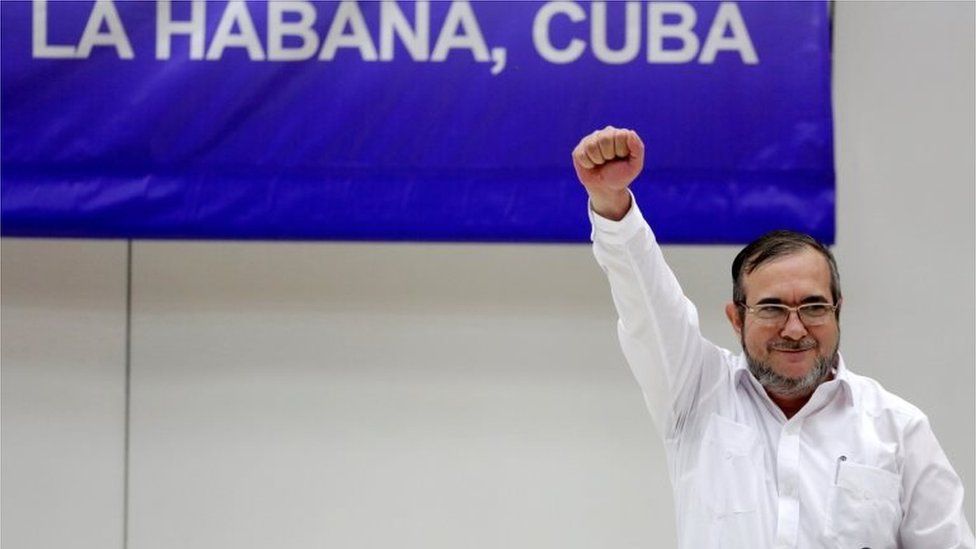Colombia's Farc to stop charging 'revolutionary tax'
- Published

The leader of Colombia's Farc rebel group says it will stop charging its so-called "revolutionary tax".
For decades, the Farc extorted money from local people and businesses in areas it controlled.
But Farc leader Timochenko said on Monday that the group would rely on its savings to feed its fighters until a final peace deal was signed.
Colombian President Juan Manuel Santos has said he hopes an agreement can be reached by 20 July.
'Live off what we have'
Timochenko said he had "ordered all the rank and file to stop the collection of taxes".
The move comes less than two weeks after the Farc and government negotiators announced the two sides would enter into a bilateral ceasefire.
Timochenko said "it was time" the Farc stopped taking money from farmers, cattle ranchers and big business.
He said the money had not been taken "on a whim" but "because we had to eat and we're not just feeding one or two people but thousands of guerrilla fighters".
Timochenko said that with a final peace deal approaching there was no longer a need for what the Farc calls the "revolutionary tax".
"We think we're nearing a final agreement, we can live off what we have until then."
Economist estimate the Farc to be one of the richest guerrilla groups in the world.
Apart from extortion, the group is believed to have amassed vast amounts of money through drug trafficking and kidnapping for ransom.
Timochenko also said that the Farc stopped recruiting new fighters for its ranks three months ago.
He urged members of the Farc to study the partial agreements reached in Havana ahead of "a conference" at which the guerrilla fighters would be asked to approve the agreements.
- Published6 October 2016
- Published22 June 2016
- Published21 June 2016
- Published16 May 2016
- Published23 June 2016